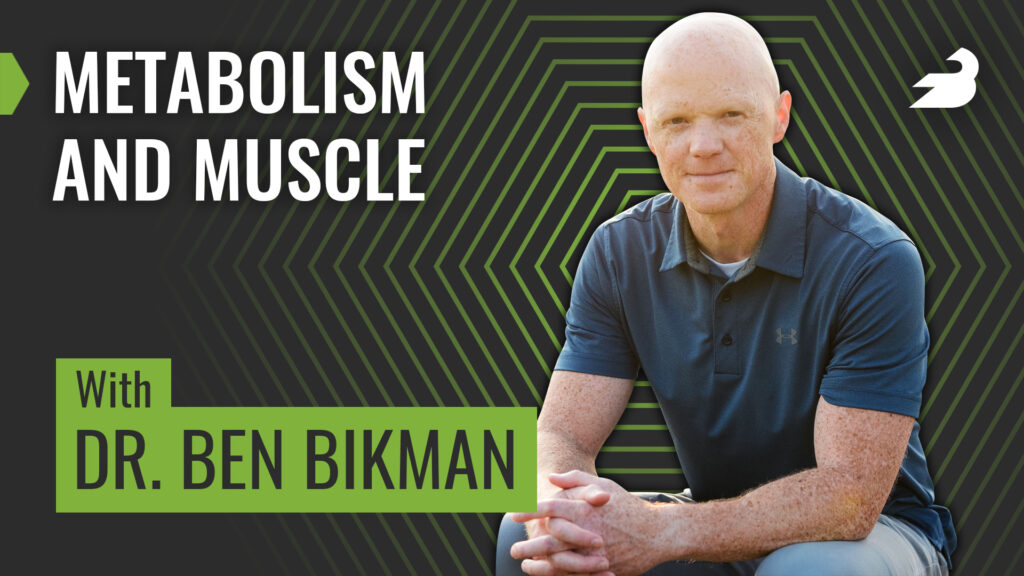Today I’m talking to Dr. Ben Bikman, PhD, a professor, researcher, entrepreneur, and author in bioenergetics. (He’s also the founder of HLTH Code, a leading meal replacement supplement.) In his own words, Ben’s research drives at exploring the “contrasting roles of insulin and ketones as key drivers of metabolic function.” Ben is also passionate about fitness, and he’s become a go-to resource and expert for many athletes and institutions hoping to better understand how what we eat drives our body’s responses and adaptations to training. In our conversation, we dive into Ben’s research, along with what data suggests regarding some key functions of these hormones for our bodies as far as hypertrophy, muscle retention, and more.
Editor’s note: The content on BarBend, including the BarBend Podcast, is meant to be informative in nature, but it should not be taken as medical advice. The opinions and articles on this site and podcast are not intended for the diagnosis, prevention, and/or treatment of health problems. It’s always a good idea to talk to your doctor before beginning a new fitness, nutritional, and/or supplement routine. If you feel like you’re suffering from an injury or illness, please seek out a medical professional.

On this episode of The BarBend Podcast, host David Thomas Tao talks to Dr. Ben Bikman about:
- Dr. Bikman’s research and education background; “you don’t just wake up with a PhD” (01:52)
- “Stumbling across” research regarding insulin resistance and bioenergetics (05:00)
- Ben’s personal interest in fitness and how it mixes with his life’s work and goals (09:22)
- Why Ben feels he has a responsibility to “highlight errors in the consensus” (13:27)
- Key roles insulin plays in the body (19:30)
- The role of insulin in protein when it comes to muscle protein synthesis and the defense of muscle protein (insulin isn’t an anabolic hormone at the muscle, but it does defend muscle protein) (20:50)
Relevant links and further reading: